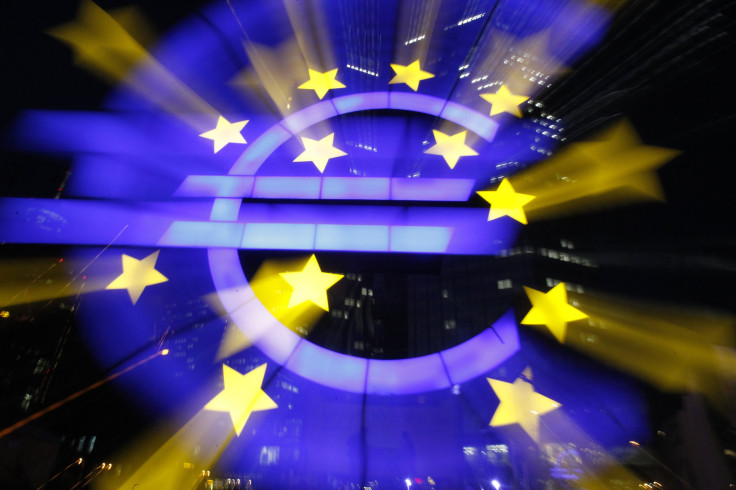Euro Zone 4Q GDP Plunge Won’t Stoke ECB Rate-Cut Expectations

The euro zone economy contracted in the fourth quarter of 2012 at its fastest pace in nearly four years. However, there are signs that economic activity in the single currency bloc have bottomed out around last October, and it is looking increasingly possible that the region could at least stop contracting in the first half of this year.
Economists believe the steeper-than-expected fall in gross domestic product is unlikely to prompt the European Central Bank into taking interest rates lower -- at least in the near term.
If the ECB was going to cut interest rates from 0.75 percent to 0.50 percent, the chances are that it would have done so by now. “It now looks likely that only a renewed serious overall downturn in euro zone economic activity will prompt the ECB into an interest rate cut,” IHS Global Insight Chief European and UK Economist Howard Archer wrote in a note to clients.
Economic output in the 17-country region not only contracted for a third consecutive quarter in the last three months of 2012, but at a much deeper rate of 0.6 percent quarter-on-quarter, EU statistics office Eurostat said on Thursday. The quarter-on-quarter drop in GDP was bigger than the consensus forecast of a 0.4 percent fall.
In 2012 as a whole, the euro zone economy contracted by 0.5 percent after an expansion of 1.5 percent in 2011. This compares to growth in the U.S. of 2.2 percent and in Japan of 1.9 percent.
Contraction in euro zone GDP was widespread and steep in the long-suffering southern periphery economies. However, the core northern euro zone economies also suffered.
Germany grew by 0.9 percent, while France stagnated and Italy and Spain contracted by 2.2 percent and 1.4 percent, respectively.
Jonathan Loynes, chief European economist at Capital Economics, said in a note, “We do not have a full breakdown of Q4 GDP by expenditure at this point. But the German statistics office stated that exports and investment dropped ‘markedly,’ while the French figures also showed a drop in exports. This will no doubt fuel fears over the economy’s vulnerability to the strong euro.”
HIS’s Archer said it is conceivable that a further marked appreciation of the euro could eventually prompt the ECB into taking interest rates lower to try and reduce the upward pressure on the single currency, but the euro is not yet at a strong enough level to warrant such action, and he doubts that it will get there.
“We also suspect that the ECB would be reluctant to cut interest rates primarily to weaken the euro, although it could justify this by saying the euro’s strength had reduced inflation risks through making imports cheaper and hurting growth prospects,” Archer added.
The hope for the euro zone is that a sustained overall easing of sovereign debt tensions and generally improved financial markets further reduces uncertainties and steadily lifts consumer, as well as business, confidence.
“However, the upside for domestic demand in the euro zone is likely to remain constrained by tighter fiscal policy in many countries, still tight credit conditions, high and rising unemployment and limited consumer purchasing power,” Archer said.
IHS Global Insight expects euro zone GDP to edge down by 0.2 percent overall in 2013, despite eking out marginal growth in the second half of the year.
© Copyright IBTimes 2024. All rights reserved.





















